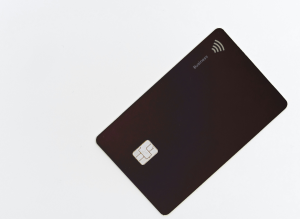Having good credit is an absolute necessity for anyone. That’s because it would determine the cost you must bear when making significant purchases. You will not usually be able to buy a house, car, or college tuition out of your pocket. This is where you will need to obtain a loan. When lending money, lenders will look at your credit score and determine the interest rates. You can get a loan at a lower interest rate if you have a good credit score. This will eventually help you save thousands of dollars in the long run.
But how can you build good credit? Here are some useful tips that you can follow to build good credit. Make sure to pay attention to these tips and build credit before making any major purchase in your life.
Check Your Credit Reports
The first step is getting copies of your credit reports from the three major credit bureaus. They include Equifax, Experian, and TransUnion. This will show you an overview of your current credit standing. In fact, the reports provide information about late payments, collections, or judgments, if any.
Review the reports thoroughly and dispute any inaccurate information with the credit bureaus. This clean-up process itself can boost your credit score. If you can’t do this on your own, there are experts that you can rely on.
Get a Secured Credit Card
If you have no credit history, get a secured credit card. This requires an upfront security deposit and works like a regular credit card. Use the card lightly for routine expenses and pay off the monthly balance in full and on time.
Doing this for 6 months to a year can help establish a positive credit history. Many secured cards allow you to graduate to a regular unsecured card after some time. Make sure not to miss out on any payments on your secured credit card. It will do more damage to your credit score than good.
Become an Authorized User
You can piggyback on someone else’s good credit by becoming an authorized user on their credit card. Ideally, ask your parent, spouse, or family member with a solid long-term credit history.
As an authorized user, you get the payment history of that card reflected in your credit report without being responsible for the debt. However, not all lenders report authorized user history to credit bureaus. Hence, you will need to do some research and pick a credit card carefully.
Apply for Credit Builder Loans
Credit builder loans are secured savings accounts to help you establish credit. The lender keeps the loan amount in a savings account. Then, they will release it to you after you make all payments successfully. The on-time monthly payments get reported to the credit bureaus. These loans can help create a positive payment history, especially if you lack any. These loans may have high interest rates, but they are worth it when building credit.
Limit Credit Checks for New Applications
Each credit application triggers a hard inquiry on your credit. It can temporarily lower your credit score by a few points. This is why you need to limit credit checks on your account. For that, you should only apply with lenders who are likely to approve you. Comparison shop for mortgage, auto, or student loans within 45 days as the credit bureaus typically count these multiple inquiries as one hard inquiry.
Keep Old Credit Accounts Open
While opening new credit accounts can decrease your average account age, keeping older accounts open can offset this drop. The longer your average credit account age, the better it is for your credit score. Do not close unused credit cards if they don’t have annual fees. You can even use them occasionally to keep them active. This is why you need to think twice before applying for a credit card with annual fees. If you are not going to use it, you should keep away from getting one.
Maintain Low Credit Utilization
This ratio compares your total outstanding card balances versus total credit limits. Experts recommend keeping this utilization below 30%. High balances close to your limit can risk lowering your credit score even if you pay in full monthly. Besides paying off cards fully every month, consider making mid-month extra payments.
Set Up Automatic Payments
Missing payments can drastically lower your credit score, and staying on top of due dates can be challenging. Enroll in automatic payments to pay at least the monthly minimum payment from your checking account every month. You can always make additional principal payments manually later. Auto-pay prevents missed payments caused by simply forgetting a due date.
Become an Authorized User on Loans
Similar to credit cards, becoming an authorized user on someone else’s auto loan, mortgage loan, or HELOC allows their positive payment history to be added to your credit report. A long history of timely payments on installment loans can improve your credit mix for scoring purposes.
Dispute Errors Quickly
Stay vigilant, review credit reports every few months, and dispute any unknown or fraudulent accounts immediately with written letters from the credit bureaus. Submitting police reports speeds up the dispute investigation process. Updating incorrect account information helps maximize your score.
Be Patient
Good credit takes diligent effort and patience to build, especially when starting from scratch or overcoming past mistakes. Typically, you can get a credit score considered fair or reasonable within 12 months by sticking to responsible credit habits – paying bills on time, keeping low balances, and having a good mix of credit types. Stay motivated by occasionally tracking your credit score achievements.
Final Words
Building good credit not only gets you approved for loans and credit cards with better terms but can also give you better insurance rates, access to cell phone contracts, and even better employment opportunities. Being a dependable borrower worthy of receiving credit requires developing fiscally responsible money habits early on.






